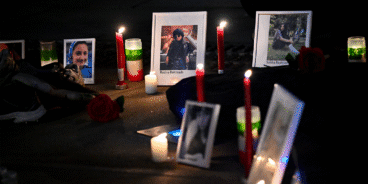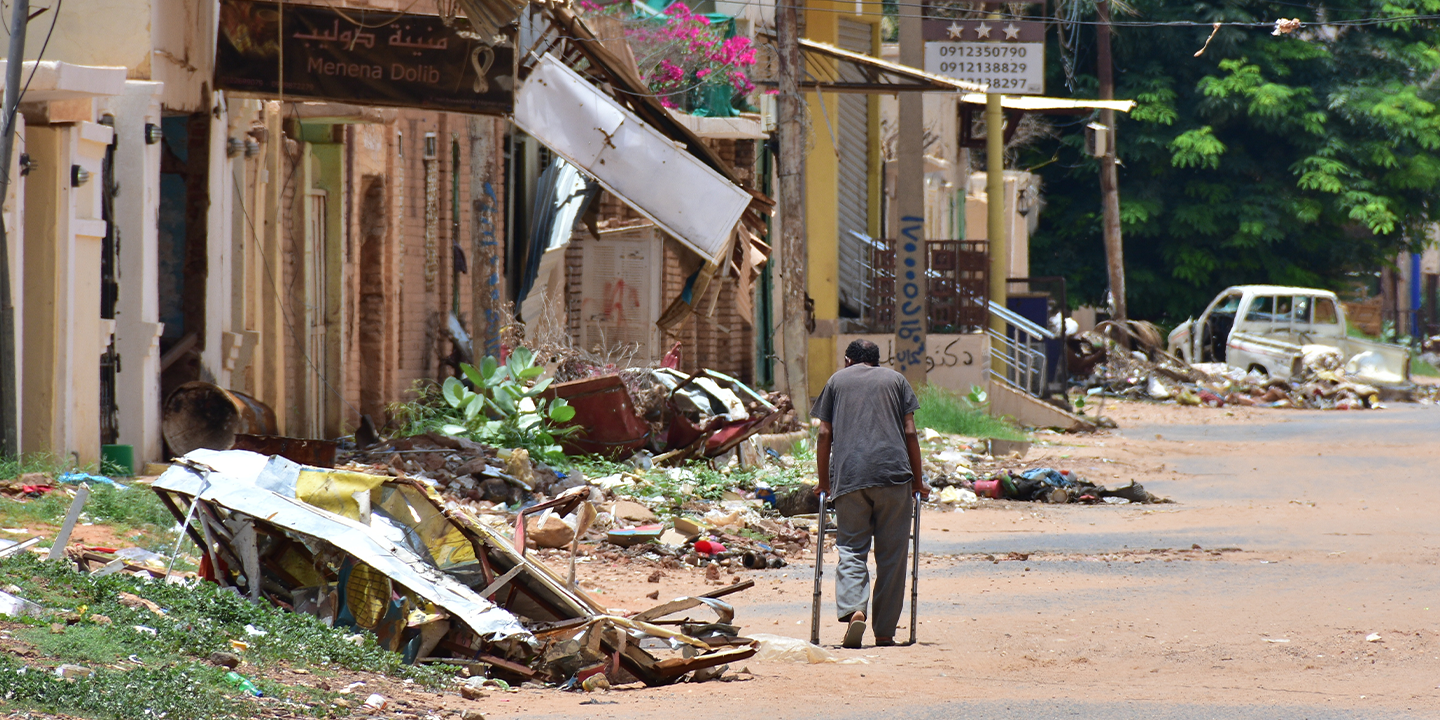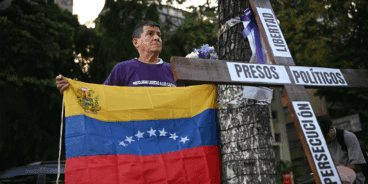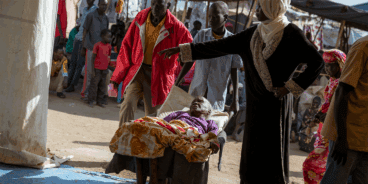

Atrocity Alert No. 408: Sudan, Burkina Faso and Afghanistan
Atrocity Alert is a weekly publication by the Global Centre for the Responsibility to Protect highlighting situations where populations are at risk of, or are enduring, mass atrocity crimes.
SUDAN PEACE TALKS END WITHOUT CEASEFIRE AGREEMENT
Yesterday, 27 August, marked 500 days since the outbreak of the conflict between the Sudanese Armed Forces (SAF) and the Rapid Support Forces (RSF) in Sudan. In recent weeks the RSF have yet again been accused of committing numerous atrocity crimes and severe human rights violations and abuses against vulnerable populations across the country. During the week of 19 August, the RSF indiscriminately attacked civilians in Galgani, Maima al Qoz, Baida and El Fasher, resulting in at least 100 deaths. On 26 August at least 25 people were killed and dozens more injured following RSF attacks on the Abu Shouk displacement camp in the El Fasher area in North Darfur. Additionally, fighting between the RSF and SAF has intensified in both Khartoum and Omdurman.
These atrocities continue unabated despite increasing efforts by the international community to reach a resolution to the conflict. From 14 to 24 August the Aligned for Advancing Lifesaving and Peace in Sudan Group – which includes Egypt, Saudi Arabia, Switzerland, the United Arab Emirates (UAE) and the United States (US), along with the African Union and the UN – held peace negotiations aimed at adopting concrete and immediate measures to alleviate the suffering of the Sudanese people, improve civilian protection and secure a lasting cessation of hostilities. Ahead of the talks Tom Perriello, the US Special Envoy for Sudan, stated, “For nearly 18 months, the Sudanese people have faced unspeakable tragedy, with over half the people forced from their homes or facing acute hunger. This man-made famine, weaponized by systematic violations of international humanitarian law and now exacerbated by flooding, is spreading fast, as town after town continues to be shelled.”
While the meeting successfully facilitated the reopening and expansion of crucial humanitarian access routes, including the Adre border crossing between Chad and Darfur, no progress has been made towards a ceasefire agreement. The SAF chose not to participate in the talks due to disagreements over the meeting format and the presence of the UAE, which has allegedly provided military supplies to the RSF. The absence of the SAF underscores the ongoing challenges in reaching a comprehensive peace agreement.
The RSF and SAF must immediately halt all attacks on civilians and civilian infrastructure, improve measures to protect civilians and facilitate the delivery of humanitarian aid through all available routes, including those across conflict lines – particularly in Darfur, Khartoum and Kordofan – and at the borders. Despite the failure to establish a ceasefire agreement, key international actors, including the US, Egypt and Saudi Arabia, must continue to support efforts to end the fighting while urgently prioritizing the protection of civilians and the prevention of further atrocity crimes, including assessments to identify communities at imminent risk and determining appropriate responses.
UP TO 200 PEOPLE KILLED IN INDISCRIMINATE ATTACK IN BURKINA FASO
On Saturday, 24 August, an estimated 200 people were killed and hundreds of others injured in Barsalogho, Burkina Faso, during an attack by the al-Qaeda-affiliated Group for the Support of Islam and Muslims (JNIM). Among the victims were soldiers, members of the government-sponsored Volunteers for the Defense of the Homeland (VDP) and scores of civilians, including women, children and the elderly. UN Spokesperson Stéphane Dujarric said, “The Secretary-General expresses his solidarity with the transition authorities in their fight against terrorism and calls on them to ensure that those responsible for these despicable acts are held to account.”
JNIM fighters reportedly launched the offensive – one of the deadliest in Burkina Faso this year – in the morning, amassing on a military position near Barsalogho, where the military and VDP members were digging trenches in attempts to protect the village. Prior to the attack, the military had allegedly forced civilians to help dig the trenches at gunpoint. These trenches are among several that Burkinabè authorities have urged civilians to establish in areas where armed Islamist groups are seeking territorial control.
Burkina Faso has been ruled by the military since a coup in 2022, promising to end the Islamist insurgency which has plagued the country for nearly a decade. However, violence has escalated and spread. According to estimates from late 2023, JNIM controlled at least 40 percent of Burkinabè territory. Following the latest assault, JNIM said its forces gained “total control over a Burkinabe militia headquarters” in Barsalogho, which is located 80 kilometers from the capital, Ouagadougou, and near the town of Kaya, a strategic locale with the last standing military force.
Civilian protection has also severely deteriorated under the military junta. Armed Islamist groups and the Burkinabè forces working to confront them have committed atrocities with impunity, fueling cycles of abuse and retaliation. Nearly 1,800 people were unlawfully killed between November and April, many in a series of mass casualty incidents.
Meanwhile, repressive measures against human rights defenders, journalists and real or perceived critics of the military junta have significantly increased. Burkinabè authorities have abused an April 2023 emergency law – promulgated in a purported effort to curtail the spread of violence and recapture territory – by forcibly conscripting dozens of prominent activists and journalists for counterinsurgency operations, likely amounting to enforced disappearances. On 21 August Human Rights Watch warned that the authorities are now unlawfully conscripting magistrates who have opened legal proceedings against junta supporters. According to Human Rights Watch, between 9-12 August at least seven magistrates received requisition orders to participate in operations in Kaya.
All armed actors must strictly comply with their obligations under International Humanitarian Law. The Burkinabè authorities must immediately end the use of conscription as a tool to silence dissent, hold perpetrators of abuses to account and work to prevent further atrocities.
TALIBAN BAN UN SPECIAL RAPPORTEUR FROM ENTERING AFGHANISTAN
The Taliban have taken measures to prevent Richard Bennett, UN Special Rapporteur on the situation of human in Afghanistan, from entering the country, according to public announcements made on 20 August. The Taliban have alleged that the Special Rapporteur’s reports are “propaganda.” The Special Rapporteur – mandated by the UN Human Rights Council to monitor and report on human rights in Afghanistan – has produced several reports documenting violations and abuses perpetrated by the Taliban. These include the arbitrary arrest of journalists and human rights defenders, targeting of opponents through enforced disappearances and extrajudicial killings and the lack of meaningful protection of minority communities from likely crimes against humanity perpetrated by the so-called the Islamic State in Iraq and the Levant-Khorasan.
The Special Rapporteur has also reported extensively on the extreme forms of gender-based discrimination against women and girls in Afghanistan. In a joint report with the UN Working Group on discrimination against women and girls, the Special Rapporteur emphasized that women and girls are experiencing severe discrimination that likely amounts to gender persecution, a crime against humanity, and can be characterized as gender apartheid because the de facto authorities appear to be governing by systemic discrimination with the intention to subject women and girls to total domination. In June 2024 Special Rapporteur Bennett presented further evidence of gender apartheid, reporting that the Taliban’s institutionalization of gender oppression deprives Afghan women and girls of the majority of their fundamental rights.
In the three years since the Taliban seized power in Afghanistan, they have continuously implemented restrictive policies targeting women and girls. Following the barring of Special Rapporteur Bennett from the country, the Taliban issued new laws which require women to completely veil their bodies, including their faces, in thick clothing in public and prohibit women from speaking aloud or from being heard in public. A statement from the Office of the UN High Commissioner for Human Rights said that the law “cements policies that completely erase women’s presence in public – silencing their voices, and depriving them of their individual autonomy, effectively attempting to render them into faceless, voiceless shadows. This is utterly intolerable.”
As the de facto authorities, the Taliban must uphold all international human rights obligations codified in the treaties to which Afghanistan is a state party, including the Convention on the Elimination of All Forms of Discrimination Against Women. The international community must take steps to ensure that the rights of women and girls, alongside other human rights protections, remain at the center of any negotiations with the Taliban, including through the Doha process. The international community must pressure the Taliban to lift restrictions and allow the Special Rapporteur safe and unfettered access to Afghanistan, as well as ensure that his mandate receives sufficient resources to continue critical reporting.
Related Content


Atrocity Alert No. 464: Venezuela, Sudan and Nigeria
